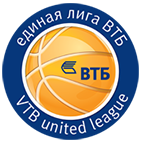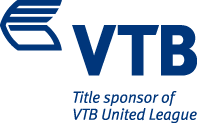12august
What To Expect From Perry Jones III At Khimki

Khimki Moscow Region blew up what had been a calm offseason in the VTB United League. While the dust settles, Nikita Belogolovcev provides an exclusive look at Perry Jones and his potential impact in the League.
***
Reset. That's why Perry Jones came to Khimki. Once one of the NBA's most intriguing talents, the ex-Thunder and Celtic will try to get his career back on track in the VTB United League. For three years, Jones tried to earn a spot alongside Kevin Durant and Russell Westbrook, while last year he couldn't make the team in Boston. But now, following Anthony Randolph's departure from Lokomotiv-Kuban, the Khimki newcomer could quickly become one of the most dominating and exciting big men in our league. Watch him closely, NBA!
Through hardship...
A bit of history. Perry Jones was born in Louisiana and attracted attention from an early age. Growing up, he was regularly listed among the top prospects in the country and compiled impressive statistics in his first year at Baylor University (13.9 points, 7.2 rebounds and 1.2 assists). Unfortunately, the team struggled and failed to qualify for the NCAA tournament. Jones was still seen as a top-10 pick in the draft, but surprised many by sticking around for a second year to "grow as a person and a player." During his second season, his stats were nearly identical (13.5 points, 7.6 rebounds and 1.3 assists), and he continued to be viewed as a top prospect.
However, Jones's hopes of a high draft pick (and solid contract) were dashed because of concerns over his knee. In the end, he dropped to 28th, selected by NBA finalists Oklahoma City.
By a twist of fate, injuries had little to do with Jones's struggles in the NBA (at least part one of his career). He was too good, and, at the same time, too bad, all at once. His pluses, which allowed him to dominate in high school and college, turned in minuses, preventing him from finding a spot in the NBA. Jones, accustomed to having time to figure things out and get plenty of touches, found himself on a team where he was behind Kevin Durant and Serge Ibaka in the rotation. He also failed to earn regular playing time. Jones ultimately didn't have a concrete skill that would help him become a solid role player. He was decent at everything (shooting the ball okay, not embarrassing himself on defense, moving the ball), but didn't excel at anything.
His best basketball to this point came during a short stretch in his third season in the NBA, when injuries to Durant (and half of the roster) catapulted him into the starting five. To hear some tell the story, Perry was dropping 30 every time out, though in reality he's only scored over 30 points once in his pro career.
Still, during the first five games of the 2014-15 season, Jones averaged 15 points on 45.7% shooting, 33.3% from beyond the arc. Then he got injured again and never returned to the same level.
In addition to the fierce competition and injuries, Perry was hampered in the NBA by a chronic inability to define a position. He entered the league as a tall (211 cm), athletic player who could shoot and, on paper, defend two positions. In reality (as is often the case), he didn't show an ability to cover anyone. Jones consistently struggled to keep up with small forwards, while big men had no trouble pushing him aside in the post. In order to become a solid stretch-forward, Perry's shot wasn't reliable enough. Oklahoma was willing to wait for him to reach his potential, but only up to a point. The local press even speculated that coach Scott Brooks was trying to turn Jones into a universal weapon against LeBron James. After all, he had quickness, an excellent wingspan (try shooting over him), and he could get help in the post. But, in the end, he predictably did not become a LeBron-killer in OKC and didn't even earn a spot on an extremely young Boston squad the following season...
To the stars?
At the beginning of the text, I had a reason for mentioning Anthony Randolph's recent departure, sad as it is. These truly are two players with similar stories: excellent potential early, struggles to find a position in the NBA, failed attempts to make the rotation, then a move to Russia. And Jones has everything he needs, at minimum, to match his predecessor's success. When Khimki general director Pavel Astakhov described his newcomer with the standard phrase "he can defend several positions," he wasn't blowing smoke, if at all. No question, Jones will spend most of his time at power forward, but he can still overwhelm almost any European small forward if Khimki decides to go big and outrun virtually any center if the team goes small. Competing in the less athletic (does no one want to argue that point?) world of European basketball, Jones isn't "too slow and too skinny," but rather "strong enough and very quick." Plus, once again he'll be able to move around on the court, demonstrating his full arsenal: 3-point shot, driving to the basket, even playing as a point-forward, and recording blocks.
It's tough to build a team that will last in Europe. Rosters get shaken up almost every year and the process will only intensify now that the NBA is throwing money at anyone who can make a few baskets. Given the circumstances, it's hard to talk about a team style or strategy. Franchise players are even less common. But by writing a big check to Alexey Shved last year, Khimki made a bold attempt to acquire a cornerstone around which a foundation, and, eventually, an entire organization can be built. As long as Khimki has Shved, the team is fated to play at super-high speeds, light up defense, and occupy the highlight reels. While there is some debate over whether this approach is good for the trophy case, we can make two confident assessments: Perry Jones likes and fits nicely with this type of team.
Nikita Belogolovcev












































